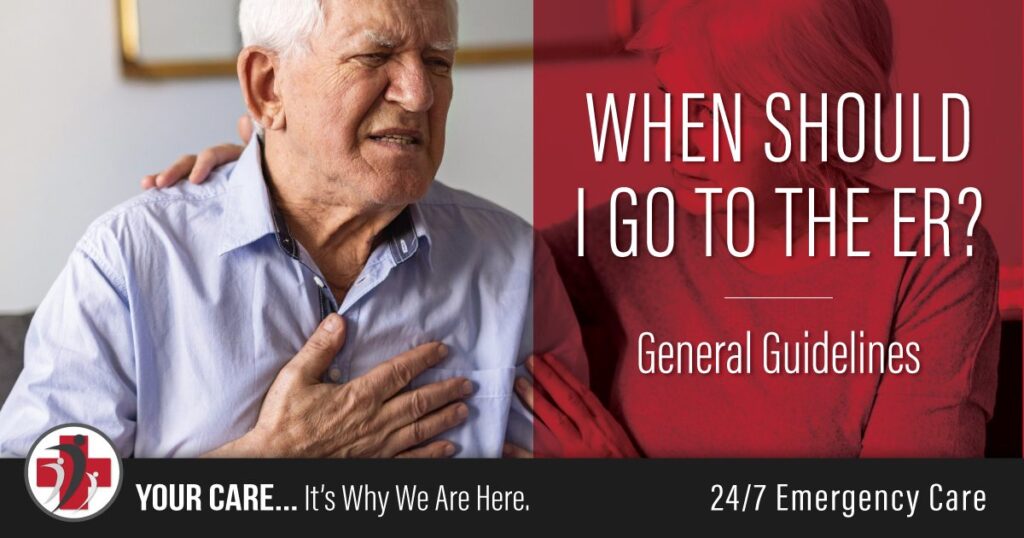In the heat of the moment, when your health or the health of someone you know and love rests on your decision, how do you know if you should go to the Emergency Room?
Every patient will see a board-certified physician at Fountain Hills Emergency room and they understand the dilemma. Conversations with patients reveal many are hesitant to visit the emergency room because they don’t want to admit something is wrong. They try to downplay potentially serious symptoms because they don’t want to risk being called a hypochondriac or “wasting time” finding out something wasn’t serious.
But, this can be dangerous mindset. it is better to get to the emergency room and have the reassurance that the issue was not serious than to ignore symptoms and discover the opposite.
GENERAL GUIDELINES – WHEN TO VISIT AN EMERGENCY ROOM
Go immediately to the ER when someone experiences any of the following:
- wheezing, shortness of breath or difficulty breathing
- chest pain
- displaced or open wound fractures
- fainting or dizziness
- sudden numbness or weakness
- bleeding that cannot be stopped
- abdominal pain – especially intense localized pain
- fever with convulsions or any fever in children under 3 months
- confusion or changes in mental status
- coughing or vomiting blood
- severe headache or head injury, especially if the individual is on aspirin or blood thinners
- blood in the urine, or bloody diarrhea
- sudden inability to speak, see, walk or move
The symptoms above are not a complete, specific listing, but rather guidelines. In addition, people should also consider the number of symptoms. Several symptoms that seem minor may be significant when they occur at the same time.

